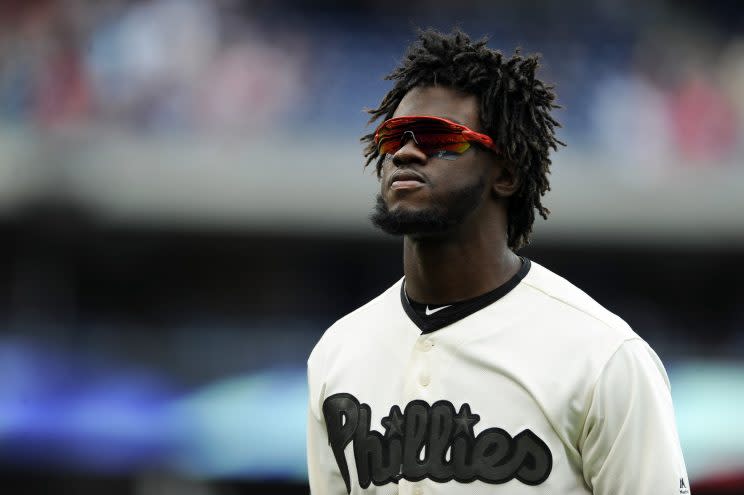Sorry, English isn't the language of MLB anymore
We aren’t playing baseball in the 1970s anymore and that was proven quite well this week with two controversies involving ex-MLB players who are still holding onto the idea that speaking English is a priority in modern baseball.
Mike Schmidt, the Philadelphia Phillies legend, said outfielder Odubel Herrera can’t be a leader on the current team because he doesn’t speak English well enough. And Jerry Remy, the Boston Red Sox TV analyst, said pitchers like Masahiro Tanaka of the New York Yankees shouldn’t be allowed to have translators on the mound.
[Fantasy Football is open! Sign up now]
Both comments generated a ton of the headlines and opinion — on both sides, some people agreed, some disagreed. But if you’re debating whether baseball players in 2017 should be able to speak English, you’re debating something that’s in the past. That’s the topic in my Open Mike video series this week.
Think whatever you want about those opinions from Schmidt and Remy, but it’s time we all realize one thing. English isn’t THE language of baseball anymore. There is no single language of baseball. The only language that matters is winning. It’s fantastic when young stars like Carlos Correa come from outside the U.S. and want to learn English. But productivity on the field is paramount.

Teams are investing hundreds of millions of dollars into international players who they think can help them win for years to come. They care a lot more about their tools on the field than how much time they’re spending with Rosetta Stone. That’s true whether we’re talking about Shohei Otani, the Japanese Babe Ruth who MLB teams are drooling over these days, or teenage prospects from Latin America who are signed by the dozen each year.
As a result, the game is more diverse and more international than it’s ever been. Star players speak English, Spanish, Japanese and Korean. A few other important facts:
• This season 34.5 percent of MLB players were born outside the U.S.
• 19 different countries were represented on MLB rosters on opening day. That’s a record. And it didn’t include Gift Ngoepe, who became MLB’s first African-born player in April, and Dovydas Neverauskas, who became the league’s first Lithuanian-born player the same week.
Simply put, if your favorite baseball team isn’t trying to build around players who don’t speak English, then your favorite team will be at a disadvantage. If your favorite baseball team uses a translator to make sure every bit of nuance hits its high-priced stars — good, your favorite team is more likely to win that way.
Modern baseball is rules by two things: Money and the quest for World Series rings. Those know no single language.
More MLB coverage from Yahoo Sports:
The StewPod: A baseball podcast by Yahoo Sports
Subscribe via iTunes or via RSS feed
– – – – – –
Mike Oz is the editor of Big League Stew on Yahoo Sports. Have a tip? Email him at mikeozstew@yahoo.com or follow him on Twitter! Follow @MikeOz


